|
I've been home from Whistler for about 5 days now, and I keep getting asked, "what happened to you during the run at Ironman Canada?" I guess it's about time I explained. To keep it short, nothing. I didn't have cramps. I didn't hurt my leg. I didn't have GI distress. In a nutshell, I went out too hard. Do I regret it? Nope. Let me explain why... Ironman Canada was my 5th Ironman, and my second time at this venue. In 2015, at Ironman Cozumel, I took 6th place in my age group. Last year, at Ironman Canada, I took 6th place in my age group again, but this time only missing the podium by 37 seconds. This year, my only real goal was to get on that damn podium (and keep my fingers crossed that it was high enough up to earn a ticket to Kona). I came into this race physically and mentally ready and for the first time ever, I could actually visualize myself on the podium. I was more excited to race than usual. When race morning rolled around, I was calm and just ran through my check list like normal. And when I lined up in the swim coral area, I was hardly nervous (also, a completely new feeling for me...usually I'm crying with fear). I felt prepared. THE SWIM I lined up in the back of the :50-:60 swim corral so I was fairly early getting into the water. Although my final swim time was 1:08:25 (a bit slower than I had hoped), I never felt like I was having to swim around anyone, and I never felt like I got swam over. I had a fairly uneventful swim. Just the usual's: the guy behind me who wouldn't stop grabbing my feet for an entire loop of the course, no matter what I did to try to shake him; cramps in my calves on the second loop of the swim course, although much less debilitating than what I'm use to; fairly calm waters between buoys with a fight around all the turns. All things I was prepared for. When I got out of the water, I quickly lapped my watch without ever taking a look at it. So, really, I had no idea what I had swam the course in. I thought, 'Oh well...moving onto T1.' After loading the data from my watch, I swam 4,197 yards (for those that don't want to do the conversion- a 2.4 mile course should be 4,224 yards long), so either I swam perfectly straight (LOL!), my watch was off (which is surely a possibility), and/or the course was slightly on the short side. It certainly wasn't long...and the water temp certainly wasn't cold (in the high 60's F) so we were able to wear wetsuits. TRANSITION 1 For my past 4 Ironmans, I have entered the women's changing tent without very many other women, which has meant I have a personal volunteer to help me in T1 (spoiled!). I never plan for assistance, but it's always welcomed! This year, they were so short volunteers in the changing tents. I had two wonderful men immediately at the swim exit to help me get out of my wetsuit quickly, but once I entered the changing tent, I was all alone. I pack everything into my bag in the order in which I want to take it out, so I just started pulling things out 1 item at a time and putting it on. By the time I got to putting on my race top (which I chose not to wear under my wetsuit this year so I could stuff the pockets with all my nutrition before the race start, and then just slip it on), a volunteer quickly stopped by and zipped it up for me before moving on to help the next athlete. I stuffed all my swim gear into my bag and ran out of the tent. I didn't rush T1, but I didn't take things slowly either. I'm always thankful for fat adaptation when I get to skip the sun screen volunteers and run straight to my bike. My family were all along the fence line to cheer me on before heading out for the lonely 112 mile bike ride. My final time for T1 was 00:04:48 (15 seconds slower than 2016). THE BIKE Having raced Ironman Canada the year before, I knew my approximately goal times for where I wanted to be and when along the course. I completed the course in 6:07 last year and my goal was to finish the course in 6 hours or less this year. Totally possible! When I left the lake and made the first real turn onto the highway (around mile 4), I immediately felt a headwind (something I didn't remember feeling last year). It was no excuse, but something I made a mental note of as to not get myself worked up if my times were slightly slower than expected. And they were. When I came back into town after the climb up to Callaghan, I was 3 minutes behind my time from 2016. "I can make that up on this descent to Pemberton" I thought. I stayed focus and mostly in aero all the way down to the meadows (reaching a max speed of 45.8mph). In the meadows, I had a hard time staying in aero last year. Not this year. I managed to stay down and stay focused. I felt strong (uncomfortable, but strong). This is the first section of the course where I got a real chance to see who was in front of me. I recognized at least 2 females from my age group, but didn't know how many others there were up there. I knew I was in at least 3rd, or further back. At mile 75, a girl from my age group passed me going WAY faster than I was. Now I'm 4th, at best. At mile 80, another girls passes me. Now, 5th+. About 5 minutes later, again and again. Two more girls fly by me. WTF! I felt like I was having a great ride, yet these girls were passing me like I was on a beach cruiser. There was a split second of disappointment, but I fairly quickly refocused back on what I could do in that moment to continue to have the best ride I could have that day. When I left the meadows and checked my watch, I was 6 minutes back from last year. Damn. Now for the 22 mile climb back up to Whistler. For me, this was just about staying consistent and getting back up the hill without completely destroying myself. I know that this is where people can easily fall apart on this course! Last year, I felt completely finished by mile 108. I remember wondering if I could manage the last few miles back to T2. This year, I felt strong, solid, and much more prepared to get to T2. And I did, but I passed no one on the way. As I got closer to town, I reminded myself why I was here. To stand on the podium. Since I knew I was not in a podium position getting off the bike, I decided in that moment that I was just going to let it go, and give it all I had on the run. I kept a steady (uncomfortable) pace to the end of the ride and finished it in 6:19:10. Twelve minutes slower than 2016. TRANSITION 2 Just like in T1, I was without a volunteer to help in T2. I was set up to do it alone, so there were no issues. I quickly got my helmet off (bike shoes were left on the bike) and threw on my running shoes and hydration pack. A quick pit stop (first of the day since the cannon went off) and I was out of there in 00:04:39 (a full minute and 28 seconds slower than 2016). THE RUN As mentioned earlier, I decided to change my running strategy from one of smart pacing, to just fuckin' go for it (within reason, of course). So I did. I ran a pace that I knew was unlikely sustainable for 26.2 miles, but if I had a great day, was possible. And since there was nothing to loose and only everything to gain, I just went for it. The entire first loop (13.1) miles felt great. Sure, things were popping up here or there (mostly my feet), but nothing was keeping my attention for too long. As soon as I hit the climb that starts the second loop of the course, my pace came to a screeching halt. At this point, my feet were killing me and my legs felt like lead. As much as I tried to pick back up the pace once I crested the climb, there was nothing left in the tank. I was at 02:03:00 on my watch at 13.1 miles, which had me on pace to finish the marathon in 4:06.00 which in only 1 minute off my Ironman marathon PR. Impressive for that course (for me), but let's be honest, after 9 years of racing triathlons, I have still never negative split a run. Now that I've had 2 weeks to think about it, I know that most of it was mental. In that first 13.1 miles, I passed NO ONE from my age group. At that 'faster than I had trained for pace,' I was still not anywhere close to podium contention and I knew it. I like to think that this didn't have anything to do with me walking the majority of the last 13.1 miles to the finish line, but let's be honest, it totally did! The big difference between this race and all the others I've done, was that I wasn't angry about it. I just knew that I wasn't fast enough today to get the results I wanted, but it didn't matter because I was still going to be an Ironman...again. And I actually got a chance to really thank some volunteers, and high five the little kids who had been standing out there all freakin' day holding their hand out waiting for 1 split second to see their Ironman pass by, and I got to look around and enjoy the beauty that Whistler has to offer (I even saw a black bear). It was actually peaceful in a very surprising way. If I could back and do it all over again, I wouldn't change a thing (except for my shoes...I would definitely change those!). THE BRAIN I am SOOOOOO dang grateful to Kristian Manietta for gifting me The Brave Athlete book just 3 weeks before this race. That book helped me in more ways than I can count get through this Ironman. The only regret I have is only having 3 weeks to really implement what I learned (and am still learning) into my training. I'll never forget crossing the line of my first Ironman in 2014 and thinking that I just wanted to STOP THINKING for a few hours. Since it was all new to me, I had to be thinking about everything ALL DAY! Salt. Drink. Eat. Stay relaxed. Check your cadence. Shoulders back. Keep your head down. Keep your head up. And it went on and on and on. Now that I've had years to practice all of those things in training, I don't have to think about them anymore. They are habit and they just happen automatically. What I HAVEN'T been working on as much as I've needed to up to this point is the mental chatter. So entering this race, I was constantly having to remind myself to "stay present," "stay focused," "stay eager." I truly believe that by mile 13.1 of the run, I was mentally burned out. I was done thinking. My Professor was done trying to keep my Chimp calm (read the book if you have no idea what I'm talking about). I am so excited to keep working at this part because, just like the "salt," "drink," "eat," "relax," etc piece that had me so mentally tired in 2014 has resolved itself with consistent practice, I know this will too. And then the beast will be unleashed! NUTRITION If you've read any of my previous race reports, you'll know my nutrition strategy because it works for me...so it hasn't changed (much)! Pre-Race Breakfast: 8oz bone broth, 1/2 cup white rice and a lot of sea salt about 3-4 hours pre-race. Regular coffee with butter and 1/2 and 1/2. 16 oz water sipped slowly. 1 Hour Pre-Race: VESPA Junior 15 minutes Pre-Race: VESPA Junior and Beet Elite T1: VESPA Junior Bike: Salt Stick cap every 15 minutes (=800mg/hour), BCAA cap every hour (.6g BCAA/hour), 250 calories/hour from Huma Gels, Lara Bars and Skratch Chews. Always 100% clean water in both my aero bottle and my down tube bottle. T2: VESPA Junior Run: Every mile I alternate between 1 Skratch Chew + 1 Salt Stick cap (all even miles) and 2 Skratch Chews (all odd miles). I throw in 1 Huma gel at mile 13.1 and always drink clean water every time I eat or drink anything. I didn't use the aid stations (except for ice, extra water and 1 cup of coke on the run) and I didn't use my special needs bags. I carried everything I needed to get me through the event in my pockets and bento box (for the bike) or my pockets and hydration pack (for the run). WHAT'S NEXT Well...clearly I need to get mentally tougher, and physically faster. I'm excited to be headed to Ironman 70.3 World Championships in Chattanooga, TN in 4 weeks where I plan to finish my 2017 season with some serious fun. After that...a journey to Kona in October to cheer on friends who are making their dreams come true this year. I'm hoping for a little fire while I'm there to keep me motivated through the off season...which will be longer this year than any year previous. I'm excited for that and the chance to take a legitimate break followed by a slow and proper build into next season without feeling rushed. As always, thanks to Kristian Manietta for the wonderful coaching and on-going patience with me. I am a better human being because of you. Thanks to my parents and Sean for always being there (in training and races) and believing in me 100%. And thanks to all my friends and family at home who helped me train and then tracked me on race day. I wished so badly that I could send you all a message on race day that everything was fine and I was just taking my time to take it all in. ;) This is the last year I'll be at Ironman Canada. Not because I don't LOVE that race (I really do!), but I am SOOOOOO EXCITED to be supporting my sister next year over the same weekend for her first crack at Tevis Cup (hopefully...she has some work to do first).
1 Comment
Tortoise and Hare
8/17/2017 08:52:59 am
Great job!!!!
Reply
Leave a Reply. |
AuthorTiana Rockwell is a certified nutritional therapist, avid endurance athlete and dark chocolate lover. She believes that by eating REAL food, we can balance our body and reach optimal health and wellness! Archives
May 2022
Categories
All
|

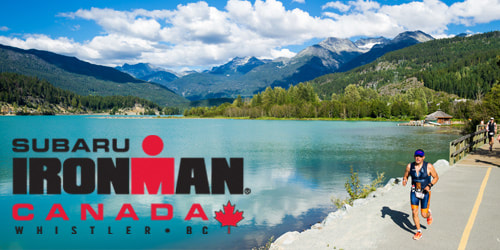



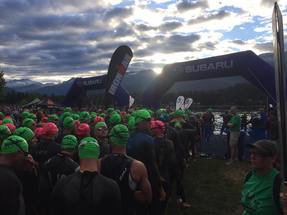
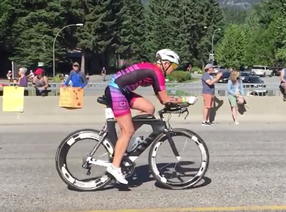
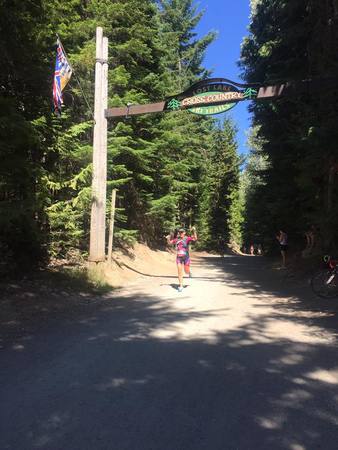

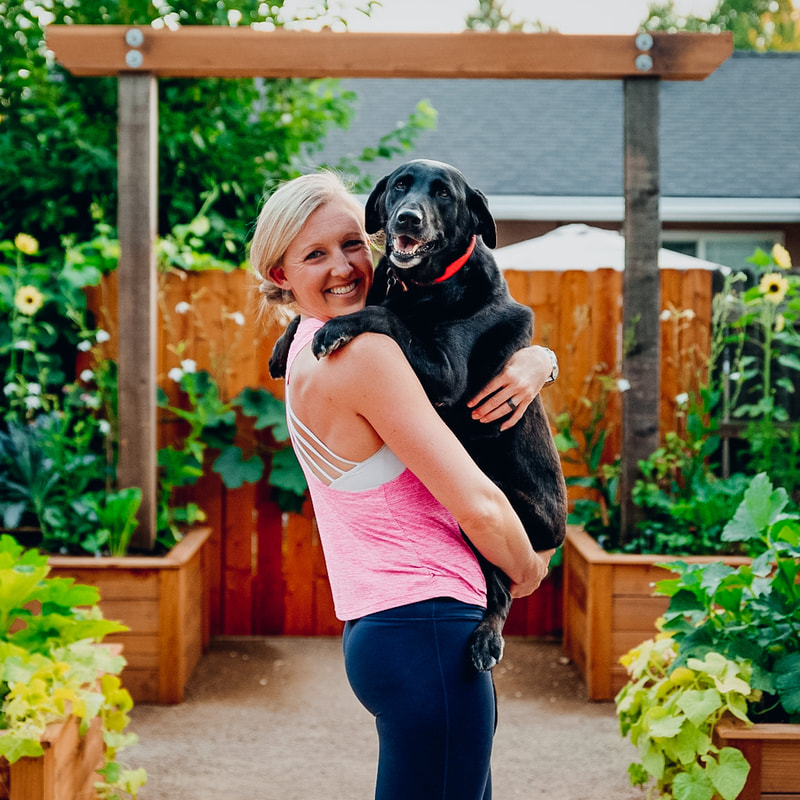
 RSS Feed
RSS Feed